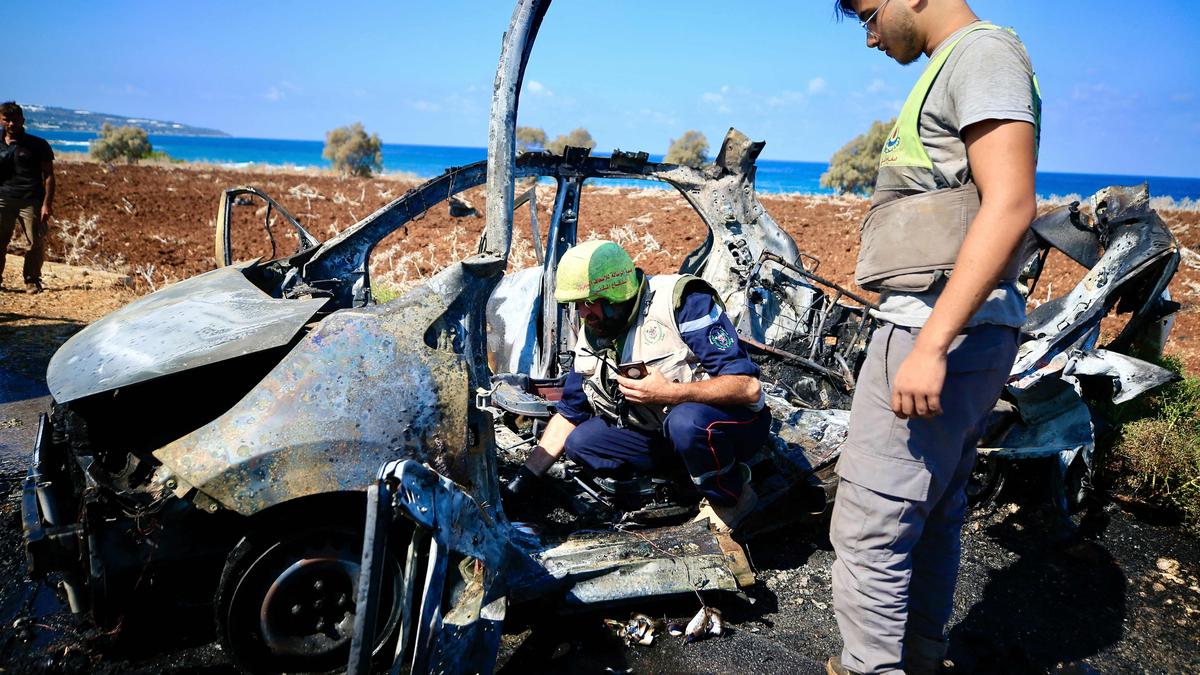The recent escalation of violence between Israel and Hezbollah has tragically resulted in civilian casualties, highlighting the devastating impact of the conflict on the Lebanese population. On September 2, 2024, an Israeli airstrike near the town of Naqoura in southern Lebanon killed two civilians travelling in a car, including a worker contracted by the United Nations Interim Force in Lebanon (UNIFIL). This incident underscores the dangers posed by the ongoing conflict and raises concerns about the safety of civilians in the region.
Escalating Violence and Civilian Casualties
The airstrike near Naqoura was the latest in a series of incidents involving civilian casualties. Since hostilities broke out between Israel and Hezbollah in October 2024, nearly 140 civilians have been killed in Lebanon, primarily as a result of Israeli airstrikes. These attacks have not only caused loss of life but also left countless individuals wounded and displaced. The conflict’s impact on civilian populations has been devastating, prompting calls for restraint and a peaceful resolution.
Impact of Airstrikes
The targeting of civilians during armed conflict is a violation of international humanitarian law. Airstrikes can result in indiscriminate harm, causing significant collateral damage and endangering the lives of innocent individuals. The impact of these attacks extends beyond immediate casualties, as they can disrupt essential services, destroy infrastructure, and create fear and insecurity within communities.
UNIFIL Condemnation and Concerns
UNIFIL, the peacekeeping force tasked with maintaining stability in southern Lebanon, condemned the airstrike near Naqoura, stating that it violated international humanitarian law. The organization expressed concern about the escalating violence and urged a cessation of attacks on civilians. UNIFIL’s statement highlights the grave implications of the ongoing conflict for the security and well-being of the Lebanese population.
Role of UNIFIL
UNIFIL’s role in southern Lebanon involves maintaining a ceasefire, promoting peace and stability, and assisting the Lebanese government in restoring its authority in the region. However, the current escalation of violence presents significant challenges to UNIFIL’s mission, as it struggles to protect civilians and prevent further bloodshed. The peacekeeping force’s limited capabilities and the ongoing conflict pose risks to its personnel and the wider community.
Hezbollah Retaliation and Cycle of Violence
In response to the Israeli airstrike, Hezbollah fired Katyusha rockets into Israeli territory, marking a further escalation of the conflict. This cycle of violence reinforces the dangers of military escalation and underscores the need for dialogue and de-escalation efforts.
The Risks of Retaliation
The use of retaliatory measures, such as rocket attacks, often escalates the conflict and creates a vicious cycle of violence. These actions not only put civilians in both Israel and Lebanon at risk, but they also hinder diplomatic efforts to achieve a ceasefire and peaceful resolution.
Impact on Lebanese Civilians and Infrastructure
The conflict’s impact on Lebanese civilians has been severe, with casualties, displacement, and a breakdown of essential services. The airstrike near Naqoura, which killed two civilians including a UNIFIL-contracted worker, illustrates the vulnerability of the Lebanese population in the face of escalating violence.
Challenges to Reconstruction and Development
The conflict has severely disrupted Lebanon’s economic and social development, posing challenges to infrastructure repair, reconstruction, and economic recovery. The displacement of civilians, destruction of property, and disruption of services have hampered efforts to improve living standards and promote stability.
Call for De-escalation and Peaceful Resolution
The ongoing violence in Lebanon highlights the urgent need for de-escalation and a peaceful resolution to the conflict. The international community must actively pursue dialogue and diplomacy to address the root causes of the conflict, prevent further bloodshed, and secure a lasting peace in the region.
Importance of Diplomacy and Dialogue
Finding a lasting solution to the Israel-Hezbollah conflict requires diplomatic efforts, dialogue, and commitment from all parties. This includes addressing the underlying security concerns, addressing regional grievances, and establishing a framework for cooperation and coexistence.
Takeaways
- The escalation of violence between Israel and Hezbollah has resulted in civilian casualties, highlighting the devastating impact of the conflict on the Lebanese population.
- The targeting of civilians during armed conflict is a violation of international humanitarian law, and efforts must be made to protect civilian populations.
- UNIFIL’s role in maintaining stability and protecting civilians in southern Lebanon has been challenged by the escalation of violence.
- The cycle of violence and retaliatory attacks poses significant risks to civilian populations in both Israel and Lebanon, and must be halted.
- A peaceful resolution to the conflict requires diplomacy, dialogue, and a commitment from all parties to address underlying grievances and promote lasting peace in the region.




